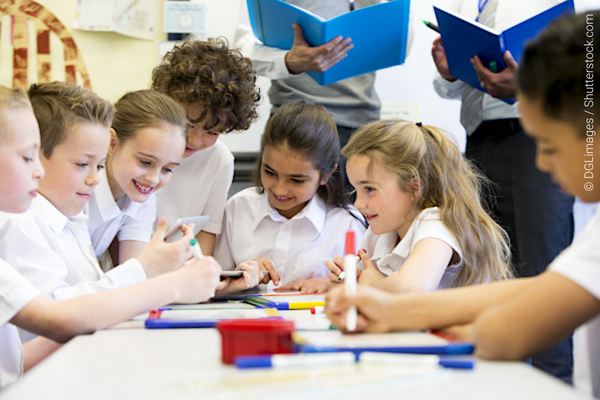Defining a school’s strategic space through performative evaluation research

What is “performative evaluation research”?
Schools have been labelled “learning communities” in conferences I have attended – a much-vaunted phrase. But what exactly might this mean in practice?
“Performative evaluation research” as a concept has been around for quite a while and suggests that, through evaluation activities which focus on a search for evidence to justify responses to pertinent questions, schools can get pertinent answers. This form of research has many of the hallmarks of “big” research, but its formative characteristics appeal to those who need to meet improvement goals or policies, which have been perhaps laid down by the Board (which directs and monitors the overall strategic and policy planning of the school), or a management group of a school, in conjunction with other stakeholders, including teachers, students and parents.
Researching in my own schools
In my own context – a primary, middle and high school – we have been engaged in implementing curriculum change centred on introducing a constructivist, inquiry-based approach to learning and teaching. This has required a major process of unlearning and learning on the part of teachers (who were educated in many cases in an age in which many still live, where imparting knowledge was a focal point of education practice).
For example, keeping up with internally mandated change towards a new curriculum model has engaged teachers in a major re-evaluation of their classroom practice, requiring the collaborative development of units of inquiry reflecting the move to giving students a more central role in their learning, along with delivery of the same in the classroom.
In conjunction with a colleague researcher in another school context in another country, who was also interested in the impact of systemic change on teachers in that school’s context, we developed a set of pertinent questions which allowed us to chart over time the progress of the school-based curriculum innovation from the teachers’ perspective.
Why consider school-based evaluation?
The notion that external ideas alone will result in changes in the classroom and school is deeply flawed as a theory of action, according to Fullan (2016). As part of a case study, teachers were consulted about their experiences with a view to enabling continuous and sustained teacher learning related to their practice in the settings in which they work. By monitoring and sharing, the school community is able to respond in real time with training, support for planning, team teaching to experiment with new ways of doing, decision-making, and other professional learning, which channels resources and effort to the places they are needed.
At the same time, if a piece of school-based evaluation research follows the tenets of academically acceptable systematic and reliable research, whatever the research paradigm adopted, then the school’s experiences can be shared with other school communities experiencing similar innovations, in this case curriculum realignment.
Sharing can be done through the regular means available for disseminating research, such as conferences, publications, interest groups, projects, etc. Initiatives of this type not only operate in a bottom-up manner, preferred by many schools wishing to address their own interests and needs, but also allow for useful dissemination of valuable work to the broader community of schools and learners.
Thus, insights from such performative evaluation activities meet clear needs and encourage outcomes based on data gathered within the school community, but this type of research also establishes formative systems within the decision-making fabric of schools, creating the characteristics of a learning organisation.
John O’Dwyer is Director of the Özel Bilkent Primary, Middle and High Schools, International Baccalaureate Continuum Schools, part of the İhsan Doğramacı Foundation, Ankara, Turkey. The schools are situated on the campus of Bilkent University, where he is also assistant professor in the Graduate School of Education.

